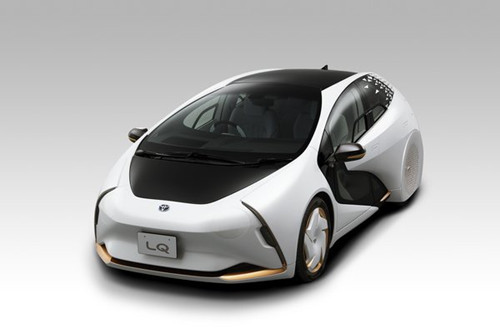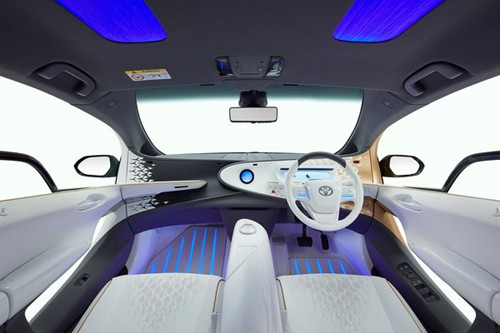Lightweight materials will play an increasingly important role in future mobility, for example, as they further extend the range of electric vehicles. As a material solutions provider, Covestro has extensive experience in the global automotive industry including the Japanese market. At the Innovation Center in Japan, Covestro develops many sustainable solutions, such as low-density polyurethane foam raw materials.

Japan’s Toyota Boshoku Co., Ltd. has selected Covestro as a partner to jointly develop new polyurethane composite materials for Toyota Motor Corporation’s new electric concept car LQ (Source: Toyota)
It is precisely because of Covestro’s innovative leadership that Japan’s Toyota Boshoku Co., Ltd. selected it as a partner to jointly develop new polyurethane composite materials for Toyota Motor Corporation’s new electric concept car LQ. Toyota Boshoku Co., Ltd. is an auto parts manufacturer under the Toyota Group in Japan. The material combines Covestro’s advanced Baypreg® F NF technology and Toyota Boshoku’s expertise in kenaf fibers to provide a lightweight and sustainable solution. The new product is used in the door panel of Toyota LQ, which is the first time that Toyota has used this material on its models worldwide.

The material combines Covestro’s advanced Baypreg F NF technology with Toyota Boshoku’s expertise in kenaf fibers to provide a lightweight and sustainable solution. The new product is used in the door panel of Toyota LQ (Source: Toyota)
As a hibiscus plant, kenaf mainly grows in Southeast Asia, Bangladesh, India and Africa. Kenaf fiber comes from the bast fiber of the kenaf plant. This raw material is attracting increasing attention due to its cost-effectiveness and good mechanical properties. In the automotive industry, vegetable fibers are also attracting increasing interest as an alternative raw material.
Lightweight and Strong
The weight per unit area of kenaf fiber-reinforced polyurethane foam composite material is extremely low, less than 1 kg/square meter, and has high strength at the same time. Car door panels made from kenaf fiber-reinforced polyurethane foam are 30% lighter than those made from conventional materials. The lighter the material, the further the vehicle can travel per fuel or charge.
This new composite material was jointly developed by Toyota Boshoku Co., Ltd. and the recently upgraded Covestro Japan Innovation Center through close cooperation. Hiroaki Ido, Director of Application Development for the Transportation Industry, Polyurethane Business Unit, Covestro Japan Innovation Center, said: “The results of our joint development have made an important contribution to the ultra-lightweight and sustainable design of automobiles, and it also demonstrates our company’s focus on efforts to use alternative raw materials and contribute to the development of a circular economy.”



 微信扫一扫打赏
微信扫一扫打赏
